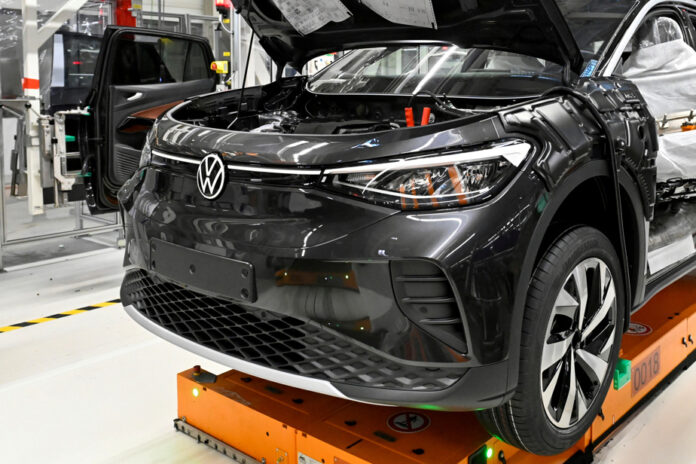Ottawa sees in Volkswagen – which will build a battery factory in Ontario – the example of resistance to American protectionism. In the Quebec electric transport sector, which is advocating for a strengthened strategy on Washington’s offensive, we would have liked to be more reassured.
As a curtain raiser for the International Electric and Intelligent Transport Summit (TEI), which brings together some 1,200 representatives in Montreal until Wednesday, it was the German automaker that caught the eye.
Volkswagen on Monday confirmed La Presse reports released last December that it will build a mega-plant for electric vehicle batteries in Ontario, specifically in St. Thomas.
This multi-billion dollar project, the value of which has not yet been disclosed, is the “biggest investment in Canadian automotive history”, according to the Minister of Innovation, Science and Industry, François-Philippe Champagne . The latter considers the announcement as “great news” for Quebec, where the foundations are being laid for an ecosystem bringing together the manufacturers of the main elements of a battery for electric vehicles, such as cathodes and anodes.
“We are talking about 60% of the value of a battery, said Mr. Champagne, in a press briefing. This client [Volkswagen] will be on the Ontario side. When you grow the ecosystem and bring in big players, it brings success. »
The arrival of Volkswagen in Canadian territory comes as the Inflation Reduction Act (IRA) – a law of the Biden administration with an envelope of 370 billion US to support, among other things, everything related to the production of batteries for electric vehicles – worry. Some fear that US subsidies will short-circuit battery industry projects planned on this side of the border.
By setting the table for a speech by Prime Minister Justin Trudeau, the president and CEO of Propulsion Québec, Sarah Houde, wanted to send a message.
“Our trading partners, both the European Union and the United States, are adopting green industrial policies,” Houde said, advocating for the same kind of initiative in Canada. They identify their priority sectors and devote efforts to them. »
A report written by senior federal officials last fall obtained by La Presse revealed that the United States could steal projects in Canada in the field of batteries for electric vehicles thanks to the IRA.
Mr. Trudeau did not respond to Ms. Houde’s request when he addressed the summit participants. Instead, he welcomed the progress made in transport electrification so far and that his government would “continue to make the investments necessary to be successful”.
Asked about the need to develop a response to the IRA at a press conference, the Minister of Innovation, Science and Industry replied that “we can’t do everything”.
The Quebec Minister of Economy, Innovation and Energy, Pierre Fitzgibbon, went a little further during an announcement preceding that of Volkswagen. While the Biden plan “keeps him awake from time to time,” the minister does not anticipate a response from Ottawa in the federal budget that will be presented in two weeks.
“In the hours following the IRA filing, I had several discussions with Mr. Champagne and the Department of Finance,” Mr. Fitzgibbon said. The budget comes out March 28 and we’ll see what’s in it, but today there is no Canadian IRA. »
The Quebec minister believes that the case-by-case approach advocated by Quebec and Ottawa makes it possible to offer measures – financial support, advantageous hydroelectric rates, etc. – able to compete with the American plan. Mr. Fitzgibbon mentioned “four or five files” where he had nothing to envy to Washington’s strategy.
Although she “prefers when announcements are made in Quebec,” Ms. Houde welcomed Volkswagen’s arrival in the country. The president and CEO of Propulsion Québec agrees with Mr. Champagne, who believes the news is a “vote of confidence” for Canada’s electric transportation ecosystem.















